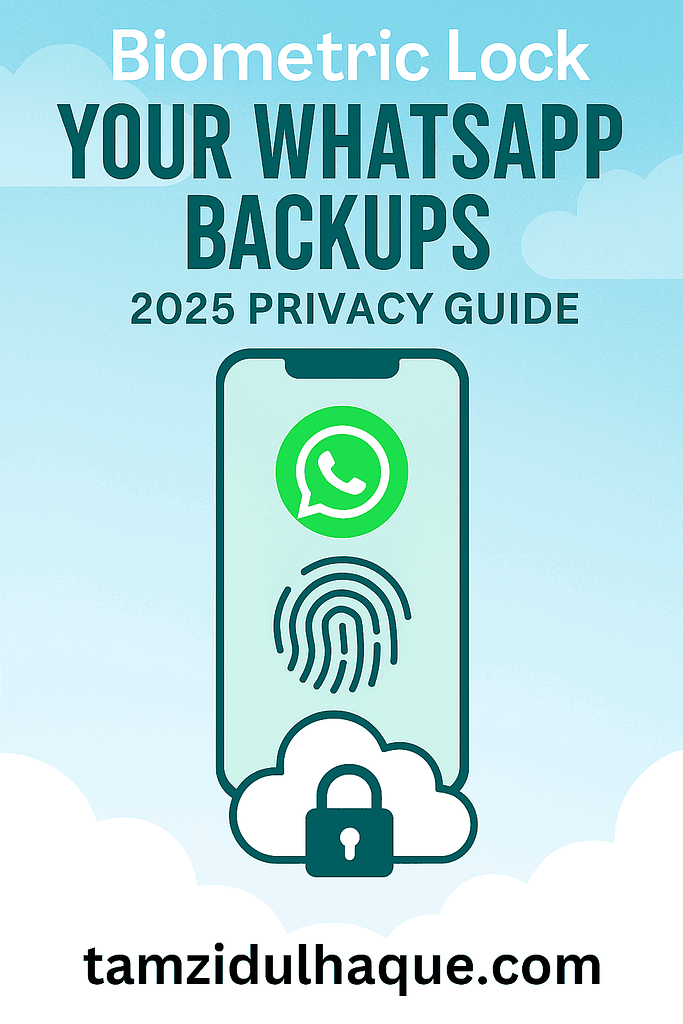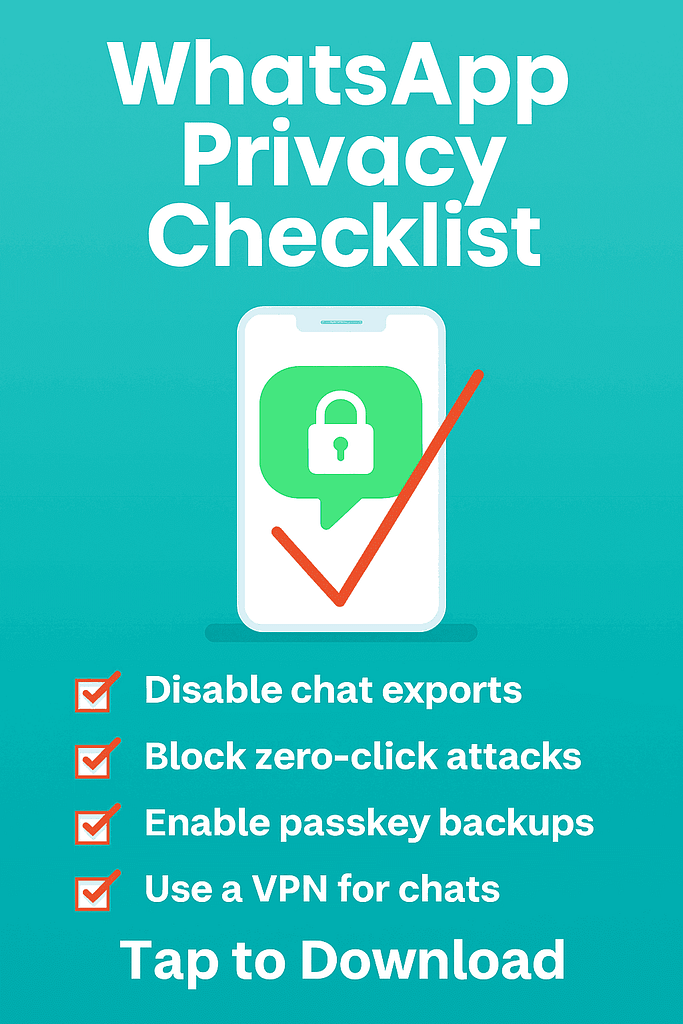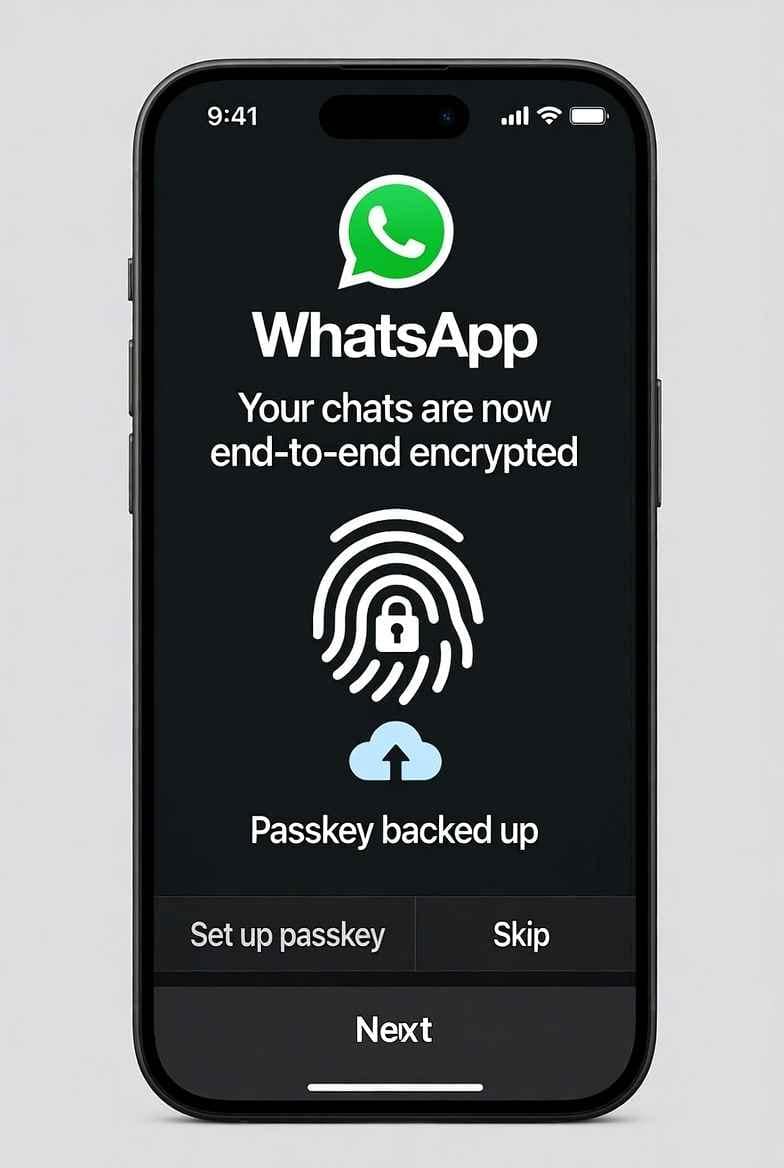Hi, I’m Tamzidul Haque. I run a tech blog focused on privacy, mobile tools, and digital security—especially for users in the USA and Canada. Today’s post is about a major WhatsApp update that could change how you protect your messages forever.
Let me start with a real story.
A friend of mine, Rahat, lives in Canada and runs a small online business. One day, while finalizing a deal over WhatsApp, he shared sensitive payment details with a client. Later, he realized his chat backups were stored in iCloud without any strong encryption. If someone had cracked his iCloud password, they could’ve accessed everything—family messages, business deals, even financial data.
That moment made him rethink how secure WhatsApp really was.
Fast forward to November 2025, and WhatsApp has finally rolled out a solution: passkey-encrypted backups. This isn’t just another feature—it’s a major leap forward in privacy.
Why WhatsApp Backups Were Risky Until Now
- Backups were previously protected by passwords—often weak ones like “123456” or birthdates.
- If your phone was stolen or compromised, cloud backups could be accessed.
- Rahat’s iCloud was nearly breached by a scammer. The stress was real, even though the deal wasn’t completed.

What Is WhatsApp Passkey Backup?
- Uses biometric authentication (fingerprint, Face ID, or screen lock) to encrypt backups.
- Built on Apple’s passkey technology.
- Works on both iOS and Android.
- No need to remember passwords—just scan and lock.
- Even if someone accesses your cloud account, they can’t open the backup without biometric verification.
- Easier chat restoration when switching phones.
- Privacy experts estimate up to 99% stronger backup security.
“Now I can sleep peacefully,” Rahat told me after enabling it.
Read more-Unlock Perplexity AI on WhatsApp: The Free AI Chat Revolution You Didn’t Know You Needed
How to Enable WhatsApp Biometric Backup Security (Step-by-Step)
If your WhatsApp version is 2.25.21.73 or higher, follow these steps:
- Open WhatsApp and go to Settings.
- Tap Chats > Chat Backup.
- Toggle on End-to-End Encrypted Backup.
- Select Passkey and follow the prompts.
- Scan your fingerprint or Face ID to confirm.
Your backup will now be encrypted and stored in iCloud (iOS) or Google Drive (Android).
Tip: If you don’t see the option, update your app. Also check if your phone supports biometric security. WhatsApp ended support for some older models as of November 1.

Why This Matters for USA & Canada Users
North American privacy laws like CCPA and PIPEDA require strong data protection. WhatsApp’s new features align with these regulations.
Common Problems & Solutions
| Problem | Solution |
| Scammers accessing backups | Passkey encryption blocks zero-click attacks |
| Losing your phone | Use remote wipe + biometric restore |
Bonus Tip: Combine with WhatsApp’s Advanced Privacy Settings (April 2025) to block chat exports.
Recommended Tools for Extra Protection
- VPN for WhatsApp traffic: NordVPN – 60% Off
- Secure Hosting for WhatsApp-integrated sites: Hostinger – Free SSL
- Privacy Tools Bundle: AppSumo Deals
What Else Is New in WhatsApp (2025 Highlights)
- Private Message Summaries (October): AI-powered, locally processed summaries.
- Zero-Click Exploit Patch (September): Major security fix for silent attacks.
FAQs
How does WhatsApp passkey backup work? It encrypts your backup using your device’s biometric security. Only your fingerprint or Face ID can unlock it.
Will this work on all phones? Supports iOS 16+ and Android 10+. Older phones may need manual backup or upgrades.
Is there any risk with the November 2025 privacy update? No. It uses end-to-end encryption and has patched known vulnerabilities.
What happens if I don’t enable passkey backup? Your backup will still be accessible via password, which is less secure.
Is this compliant with US and Canadian privacy laws? Yes. It meets CCPA and PIPEDA standards for data protection.
Final Thoughts
Don’t wait until it’s too late. Enable passkey backup today and protect your chats from unauthorized access. If this guide helped you, share it with others—especially those in the USA and Canada who rely on WhatsApp for personal or business communication.
Have a story like Rahat’s? Share it in the comments. I’ll be back soon with more tech tips and privacy updates.
Thanks for reading.
